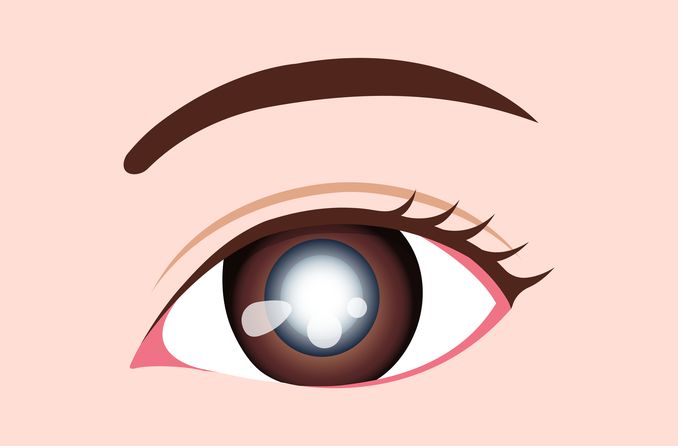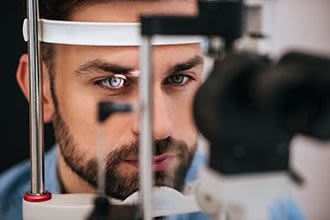Does age affect eyesight after age 40?

Your body changes as you get older, and the same is true for your vision. Some vision changes in your 40s and 60s are natural and aren’t cause for alarm, while others are much more serious.
Here are four vision conditions to be aware of as you age:
Presbyopia
If you find yourself squinting to see and read text as you get older, you could have presbyopia — literally “old sight” in Greek. As you age, the lens of your eye naturally hardens and loses its ability to change shape, which can make it hard for you to focus on things that are close up.

How serious is it?
Presbyopia, or age-related farsightedness, is a very common vision change for people in their 40s through their 60s. There are plenty of ways to correct the condition, including reading glasses that you can pick up (without a prescription) at your local optical store or online. Vision surgery is also an option, but it isn’t necessary in most cases.
If you start to have trouble reading the fine print, schedule an appointment with your eye doctor to find out what treatment is best for you.
SEE RELATED: How does age affect my vision?
Cataracts
Cataracts make the lens of the eye look cloudy. They develop as the tissues in your eye — the ones responsible for focusing your vision — begin to age. Colors may appear less vibrant, and you may see blurry splotches in your field of vision.

How serious is it?
Cataracts are one of the most common vision changes in your 40s. They’re also the most common cause of vision loss in people over age 40, and the leading cause of blindness overall.
The effects of most cataracts can be successfully treated with prescription eyeglasses or contacts, but, if your eyesight seems to be getting worse, vision surgery is a relatively simple procedure.
During cataract surgery, your eye’s lens will be replaced with an artificial intraocular lens (IOL) and your cloudy vision will vanish.
Glaucoma
As with cataracts, an eye with glaucoma will look cloudy or foggy. As you age, pressure within your eye can grow and damage your optic nerve. Glaucoma can make your peripheral vision blurry, and in serious cases, it might make you physically sick.

How serious is it?
While glaucoma isn’t an uncommon vision change for people in their 40s, the effects, including possibly blindness, can be serious if left untreated. Medication can keep at bay some of the effects of glaucoma.
Unfortunately, many cases of glaucoma are asymptomatic and often go undetected until noticeable, irreversible vision changes have occurred. How’s that for a reason to see your eye doctor regularly?
If you’re at higher risk for developing glaucoma — if you have a family history of glaucoma, severe myopia, you’re over 60, diabetic, African American, etc. — or your eye doctor finds signs of glaucoma during an exam, schedule annual eye exams and discuss a treatment plan.
WHEN WAS YOUR LAST EYE EXAM? Find an eye doctor near you and schedule an appointment.
Age-related macular degeneration (AMD)
If your vision includes blind spots, see a local eye doctor immediately: Age-related macular degeneration may be to blame.
The macula — the small middle part of the retina — allows you to see fine detail, but its tissues are thin and deteriorate as you age. This can cause blind spots to form in the center of your vision.

How serious is it?
AMD is the leading cause of vision loss among older Americans and should be treated as a severe risk to your health.
If left untreated, AMD can cause permanent damage to your central vision. If caught early, weaker forms of the disease may be treated with nutritional supplements and exercise.
More severe cases might require injections in your eyes or laser therapy.
There is no cure for AMD, and early prevention is your best defense.
Annual eye exams can keep your vision healthy
Regular eye exams are critical to maintaining your health as you age. Schedule an appointment with an eye doctor near you and make a plan for your continued vision care.
Page published on Friday, January 10, 2020






